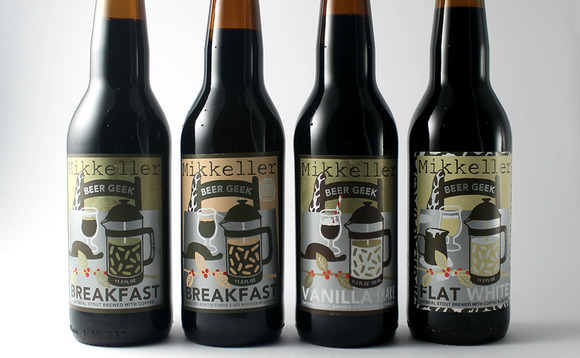
Deal in Focus: Orkila taps European craft beer with Mikkeller deal

Danish craft brewery Mikkeller has become the first in Europe to receive private equity backing, following an investment by speciality US investor Orkila Capital. Mikkel Stern-Peltz speaks to Orkila founder and former Providence Equity partner Jesse Du Bey
Orkila Capital, a US-based investor focusing on growth investments in media, entertainment and consumer businesses, has acquired a minority stake in Copenhagen-based craft brewery Mikkeller from founder Mikkel Borg Bjergsø.
The deal saw Orkila invest an undisclosed amount in return for a 10-15% stake in Mikkeller. The GP's founder, Jesse Du Bey, said he was introduced to Borg Bjergsø through mutual friend Aaron Dessner, a member of American rock band The National, who took an early interest in the brewer.
"What made the deal happen is my fondness of the sector and the fact a lot of our expertise is all about scaling businesses and building brands," says Du Bey. "Mikkel and his team are world class when it comes to ideating tastes, feel, looks and products, and I think Orkila is complementary to that."
People are getting more educated about spirits and beer, they care more about the story behind and the quality of the products" – Jesse Du Bey, Orkila Capital
Du Bey left his position as partner at US private equity outfit Providence Equity in 2013 to found Orkila and return to his favoured growth equity investing, raising a fund the same year with institutional backers.
Mikkeller is the fund's first investment in craft beer, though it is currently backing Brooklyn craft bourbon distillery King's County, and Du Bey says the two industries share common traits: "People are getting more educated about spirits and beer, they care more about the story behind and the quality of the products."
The company was founded by Borg Bjergsø and business partner Kristian Keller in 2006. According to publicly available financials, it posted EBITDA of DKK 19.7m in 2015 and had DKK 30m of cash on its balance sheet.
Du Bey says Orkila is comfortable not being in a controlling position, but instead working as an adviser providing strategy, growth advice and capital to "people who have a vision".
"We'll never begin to understand what Mikkel understands and thinks about from a product perspective, but he has visions of growing the business exponentially. I think it was important for him to choose an investor in the US with relationships in that market, as it's likely going to be the biggest market for Mikkeller."
Not just froth
The European craft beer market has seen explosive growth in the past half-decade, but the region's private equity players have shied away from getting in on the ground floor of the trend, leaving acquisitions and investment up to the global beer and alcohol conglomerates.
According to trade body The Brewers of Europe, the number of European brewers grew by 73% to 5,665 in the five years to 2014, despite an overall drop in beer consumption. The vast majority of that growth was fuelled by craft breweries, and the industry is projected to continue to increase its share of the beer market in the future.
"Europe is perhaps 5-10 years behind the US with the emergence of craft breweries," says Du Bey. The US beer industry has experienced a renaissance in the past 20 years with the emergence of craft brewing, he says. "From 10 years ago it has grown from representing 2% of the sector's revenue to 20% of a $100bn market, but we're still only at the beginning as it only makes up around 10% of total volume."
Craft brewers have generally resisted institutional investors for growth capital, predominantly preferring organic growth to relinquishing control. In Europe, Scottish outfit BrewDog launched a successful crowdfunding program, Equity for Punks, to fund its expansion despite institutional interest, and recently opened the fifth round of fundraising.
As such, Orkila has overcome one of the major hurdles for private equity investing in the craft beer market. "It is a fair point that if you don't pick the right firm to partner with, you could end up with investors who add a pressure to the decision making to compromise quality for profit – that's the fear," Du Bey says. "It's a concern any time money infuses into an industry that weights authenticity and quality."
Du Bey acknowledges the importance of finding an investor that honours the vision of founders and is focused on long-term brand development, and says the motivation behind founding Orkila was a gap in the market for precisely that type of fund. The GP's vehicle can hold investments for more than 10 years and Du Bey says that, although no considerations have been made about the eventual exit, it is highly unlikely the fund will sell its stake to a competitor or one of the brewing giants.
Latest News
Stonehage Fleming raises USD 130m for largest fund to date, eyes 2024 programme
Sponsor acquired the public software group in July 2017 via the same-year vintage Partners Group Global Value 2017
Stonehage Fleming raises USD 130m for largest fund to date, eyes 2024 programme
Czech Republic-headquartered family office is targeting DACH and CEE region deals
Stonehage Fleming raises USD 130m for largest fund to date, eyes 2024 programme
Ex-Rocket Internet leader Bettina Curtze joins Swiss VC firm as partner and CFO
Stonehage Fleming raises USD 130m for largest fund to date, eyes 2024 programme
Estonia-registered VC could bolster LP base with fresh capital from funds-of-funds or pension funds









